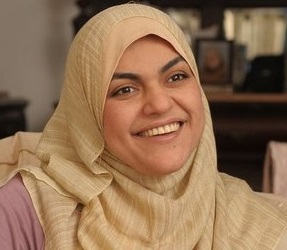To have a lasting impact, resources for development must increase and the increases must be sustained if we are to keep the promises that have been made to the world’s poor and achieve the Millennium Development Goals. However, at the midpoint to the target year of 2015 the growth of resources for development has stalled.
Nearly seven years ago, the world came together and agreed to bring to bear both the political will and the necessary resources to address one of the biggest challenges facing the world: the fight against extreme poverty. World leaders cemented their commitment to meet these challenges when they signed up to the Millennium Development Goals setting out ambitious, but attainable, goals to significantly reduce poverty, tackle health challenges, promote gender equality, and safeguard the environment by 2015
In the years that followed, the appetite for “making poverty history gained real momentum, with the G8 and the European Union in 2005 pledging to increase aid significantly by 2010.
However, the dramatic increases in development assistance that year, which reached a record $106.8 billion, was due largely to debt relief grants to Iraq and Nigeria, and the rise in aid to tsunami-affected countries, instead of aid directly financing growth and development.
Development aid, on the rise since 1997, decreased in 2006 by 5 percent stopping what had appeared as a strong upward trend in the face of extreme poverty, particularly in Africa as well as other regions.
What is startling is that the lack of sufficient assistance is becoming apparent precisely when an increase in aid is needed to confront issues that disproportionately affect the poorest countries. This includes issues such as climate change, which many are talking about, but too few realize is already affecting the lives of people in the developing world as water availability becomes more unpredictable, with increasing prevalence of droughts, floods and variability of rainfall patterns – yet another development challenge that will afflict the poor disproportionately.
An OECD study shows that if all donors respected their commitments, ODA (in 2004 dollars) from DAC members would rise from just under $80 billion in 2004 to $130 billion by 2010. This would mean – given the decrease in 2006 and a further expected decrease in 2007 as the volume of debt relief declines – that aid would have to increase faster than almost any other form of public expenditure: by 11 percent every year from 2008 to 2010 in real terms. And these targets do not yet include the additional resources which will be required as part of a global deal to address the affects of climate change.
As a former Minister of the Treasury in my native Turkey, I recognize the fiscal constraints governments face. But at the same time it is clear that citizens in donor countries increasingly understand that in an ever more interconnected world, poverty and insecurity in one part of the world directly affects their own lives. An investment in aid is an investment in building a better and safer world for all. This development assistance must also be driven by strong nationally-owned strategies focused on inclusive growth. Foreign aid can be a complement but not a substitute for such strategies.
The good news is that developing countries are also taking concrete steps to make aid resources go further and reach the people whose lives it is meant to improve. The African Union’s New Partnership for African Development, for example, has helped contribute to economic responsibility and has strengthened monitoring policies across many African countries.
Working with partnerships like these, donors can help developing countries improve their development policies to ensure that aid is used in productive ways and gets to those who need it the most.
At the mid-point towards the 2015 deadline of achieving the MDGs, G8 countries and other donors have the opportunity to fulfill the commitments made just a few years ago on a global partnership for development. It is an opportunity we cannot afford to miss.
As the 23 members of the OECD Development Assistance Committee gather at their high-level meeting in Paris this week, ministers from donor countries and heads of agencies have an important opportunity to ensure that the commitments that have been made to fight poverty and promote sustainable development are kept.
Kemal Dervis is the Administrator of the United Nations Development Programme and chair of the United Nations Development Group, a committee consisting of all UN funds, programs and agencies working on development issues.
